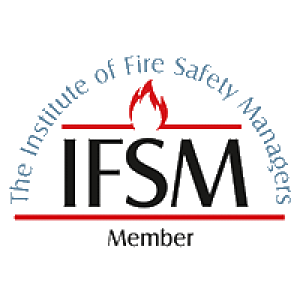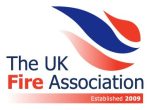Picture this: you’re enjoying a perfect day on the water with family and friends, when suddenly you smell smoke.
In the confined space of a boat, fires can spread incredibly fast, turning your dream day into a nightmare in minutes.
But here’s the good news – most boat fires are completely preventable with the right knowledge and preparation.
Let’s talk about how to keep your vessel and everyone aboard safe from fire, because nothing should cut your boating adventures short.
Why This Really Matters
Here’s a sobering fact: fires on boats have killed 30 boaters in the UK over the last 20 years.
Each one of these tragedies could have been prevented.
The Marine Accident Investigation Branch deals with over 1,500 marine incidents annually, and fire-related emergencies are among the most serious they investigate.
Don’t let these statistics scare you away from boating.
Let them motivate you to be prepared.
With proper safety measures, your biggest worry should be whether you packed enough snacks for the day!
Your Fire Safety Arsenal: The Essential Kit
Smoke Alarms: Your Early Warning System
Think of smoke alarms as your boat’s security guards. They never sleep, and they’ll wake you up if trouble starts brewing. Boat fires spread fast, and smoke can fill your cabin in no time, making escape nearly impossible.
You want optical sensor alarms with hush buttons and ‘sealed for life’ batteries. No more jumping out of bed when you burn the bacon! Consider linked alarms that all go off together, so everyone knows there’s trouble. Place them anywhere you’ll actually hear them clearly. Test them when you board and monthly while you’re living aboard. Please, never disconnect them or remove the batteries, even if the toast is a bit overdone.
Carbon Monoxide Detectors: The Silent Threat Guardian
Carbon monoxide is sneaky. You can’t see it, smell it, or taste it, but it can kill you. Engines, generators, and heating systems can all produce this deadly gas.
Look for marine-grade CO alarms that meet the EN50291-2 standard. When you’re shopping, check for proper approval symbols. It’s like a quality guarantee for your safety.
Gas Leak Detectors: Your LPG Safety Net
If you’ve got LPG aboard (and most of us do for cooking), install a bubble-type gas leak indicator in your cylinder locker. Make testing it part of your routine by pushing that test button regularly. If you smell gas, turn off the supply immediately and get it checked before you do anything else!
Fire Fighting Equipment: Your Last Resort Arsenal
Fire Extinguishers: Choose Wisely
Here’s the thing about fighting fires on boats – sometimes it’s better to run than fight. But if you’re going to have extinguishers (and you absolutely should), make sure they’re the right ones.
Only buy extinguishers with recognised approval marks. Position them near exits and high-risk areas like the galley and engine room. Make sure everyone aboard knows how to use them. Here’s an important heads-up about dry powder extinguishers: they create a thick powder cloud that can make it hard to see and breathe. Don’t let fighting a fire trap you – your escape route is more important than saving the boat.
Fire Blankets: The Unsung Heroes
Fire blankets are brilliant for smothering small fires, especially in the galley. Keep them handy near cooking areas. Make sure everyone knows where they are. Check those expiration dates – yes, they do expire!
Keeping Your Kit in Fighting Shape
Your safety equipment is only as good as its condition. Check extinguisher pressure gauges regularly – if the needle’s not in the green, it needs attention. Look for dents, leaks, or damage. Check pins and mechanisms work properly. Replace or service according to manufacturer recommendations.
Think of it like an MOT for your safety gear. Regular checks keep everything working when you need it most.
Galley Safety: Where Most Fires Start
Let’s be honest – the galley is where the magic happens, but it’s also where things can go very wrong, very quickly.
Cooking Without Catastrophe
Never, ever leave cooking unattended. If you need to step away, turn it off first. Oil fires are particularly nasty because oil gets incredibly hot, so take extra care. Don’t cook when you’re tired, tipsy, or on medication that makes you drowsy.
Keep your cooking area clean because built-up grease is like kindling waiting for a spark. Use spark lighters instead of matches when possible – no naked flames waving about. Keep tea towels, curtains, and clothing away from hobs. If you’ve got gas hobs, make sure they have flame supervision devices that shut off the gas if the flame goes out. Turn everything off properly when you’re done – not just “down low,” but actually off.
Heating Systems: Warmth Without Worry
Your heating system keeps you cozy, but it needs respect. Check areas around exhausts for heat damage or charring. Get your chimney swept regularly (yes, boat chimneys need sweeping too!). Only use the fuel your heater manufacturer recommends. Be careful with embers – even when they look cold, they might not be. Make sure all components are proper marine-grade kit.
Never use portable camping equipment or barbecues on your boat. Barbecues produce dangerous levels of carbon monoxide, and those flying embers could set your boat alight.
Preventing Fires Before They Start
If You Smoke
We’re not going to lecture you about smoking, but if you do smoke aboard, be smart about it. Smoke outside on deck rather than in the cabin when possible. Use a proper, stable ashtray designed for boats. Keep cigarettes well away from anything flammable.
Never smoke when refueling or changing gas bottles – this should be obvious, but it bears repeating. Be extra careful when you’re tired, and definitely don’t smoke in bed. Empty ashtrays regularly before ash builds up.
The Candle Conversation
Here’s a hard truth: candles have caused fatal boat fires. Consider LED alternatives instead – they give you the same ambiance without the risk. If you must use real candles, use proper fire-proof holders and never leave them unattended.
Pot-pourri and oil-reed diffusers are much safer alternatives to scented candles and smell just as lovely.
Smart Interior Choices
When choosing furnishings, look for fire-resistant labels. Keep fabrics and paper away from anything hot – hobs, flues, even bright light bulbs that get warm. Here’s something you might not think about: those lovely domed deck lights can focus sunlight like a magnifying glass and cause heat damage or fires on bright days.
Fuel, Gas, and Electrical Safety: The Technical Stuff Made Simple
Engine Bay Basics
Your engine compartment needs regular attention. Don’t let oil and debris build up in the bilges – it’s messy and dangerous. Check around exhaust systems for signs of overheating. Look for loose fuel connections or deteriorating hoses. If something looks, smells, or sounds wrong, investigate immediately.
Refueling: Do It Right Every Time
Refueling should be routine, but never careless. Put out all naked flames first – engines, cooking, cigarettes, everything. Close doors, windows, and hatches to keep vapour out. Refuel portable engines and generators away from your boat. Clean up any spills immediately. Only carry spare petrol if you really need to, and store it properly in self-draining lockers.
Gas Safety: Respect the Invisible Danger
LPG is wonderful for cooking and heating, but it demands respect. Have everything installed and serviced by qualified people. Never block vents or air gaps. Secure cylinders properly after changing them. Test for leaks with proper leak detection fluid.
Turn gas off at night and when leaving the boat. Replace any hoses that show cracking or deterioration. Store cylinders upright in proper lockers outside the cabin. Remember: if you smell gas, turn it off immediately and don’t use it until it’s been checked.
Electrical Systems: Invisible Fire Hazards
Electrical fires can develop incredibly quickly. Look for proper safety marks when buying electrical goods. Use qualified marine electricians for any serious work. Don’t overload sockets – one plug per socket, please. Unplug things when you’re not using them. Make sure battery restraints are secure.
Watch for warning signs like scorch marks or burning smells, and listen for buzzing, fizzing, or crackling sounds. If you notice any of these, turn the power off immediately and don’t turn it back on until a professional has checked it.
Planning for the Worst: Emergency Procedures
Before You Set Off
Make sure everyone aboard knows where the emergency shut-offs are and how to use them. Show them how to operate fire blankets and extinguishers. Explain what the escape plan is. Point out where all the safety equipment lives.
Nighttime Precautions
You’re most vulnerable when sleeping, so before bed, do a final check of the whole boat. Make sure all cooking and heating is properly off. Check that candles and cigarettes are completely out. Keep a torch handy with spare batteries that you know work.
Communication Essentials
You need a VHF radio – don’t rely on your mobile because there might be no signal and water doesn’t mix well with phones. Keep a handheld, waterproof VHF for emergencies. Have life jackets for everyone in good condition. Make sure you have a way to track your location for emergency services.
If Fire Breaks Out: Your Action Plan
If you’re near shore or inland, get everyone off the boat immediately. Call 999. Stay off the boat and let the professionals handle it.
At sea, get everyone on deck away from the fire. Get life jackets on everyone. Take your handheld VHF with you. Make a Mayday call on Channel 16. Signal for help.
The golden rule: if in doubt, don’t fight the fire yourself. Get out, stay out, and call for help. Boats can be replaced; people cannot.
Your Safety Routine: Testing and Maintenance
Every month, test those smoke alarms and CO detectors. Check fire extinguisher gauges. Test gas leak detectors. Make sure escape routes are clear.
Every season, have gas appliances serviced professionally. Get electrical systems checked. Replace any deteriorating hoses or connections. Check expiration dates on safety equipment.
Annually, get a comprehensive safety equipment inspection. Have your engine and exhaust system checked professionally. Get electrical system certification. Practice emergency procedures with your crew.
Where to Get Help and More Information
Don’t go it alone – there are loads of great resources available.
The Boat Safety Scheme at www.boatsafetyscheme.org/fire is your go-to for fire safety guidance. The Maritime and Coastguard Agency at www.gov.uk/mca gives you the official word on regulations and emergencies. The Marine Accident Investigation Branch at www.gov.uk/maib helps you learn from others’ experiences.
For training and kit, check out the Royal National Lifeboat Institution at www.rnli.org.uk – they’re the experts in water rescue and safety. The Royal Yachting Association at www.rya.org.uk offers training courses for every level. The British Marine Federation at www.britishmarine.co.uk connects you with professional services and suppliers.
Your local fire and rescue service offers free advice. Visit www.fireengland.uk/firesafety for general fire safety tips. Complete a personal safety assessment at www.ohfsc.co.uk.
Let ESI Keep You Safe on the Water
Getting the right fire safety equipment is just the first step. You need to make sure everything is properly installed, regularly maintained, and always ready when you need it most.
ESI specializes in marine fire safety systems and can help you choose the correct smoke detectors, carbon monoxide alarms, fire extinguishers, and fire blankets for your specific vessel. We don’t just sell you the equipment – we install it properly, service it regularly, and make sure your crew knows how to use it.
Our marine-certified technicians understand the unique challenges of boat fire safety. We know which optical sensor smoke alarms work best in marine environments. We can recommend the right fire extinguishers for different areas of your boat. We’ll position everything correctly so it’s accessible when you need it but out of the way during normal use.
Regular servicing keeps your fire safety equipment in peak condition. Our maintenance programs ensure your smoke alarms stay sensitive, your extinguishers maintain proper pressure, and your gas detection systems remain accurate. We’ll remind you when equipment needs testing, servicing, or replacement.
Don’t leave your fire safety to chance. Contact ESI today to discuss your boat’s fire protection needs. Because when it comes to fire safety on the water, professional installation and maintenance could save your life.
Your Pre-Trip Safety Checklist
Before every trip, tick these off:
Safety Knowledge & Planning
- [ ] Everyone aboard knows the emergency and escape plan
- [ ] Crew knows how to use fire blankets and extinguishers
- [ ] Emergency contact procedures understood by all
Equipment Checks
- [ ] Smoke alarms tested this month
- [ ] CO detectors working properly
- [ ] Fire extinguishers checked (pressure, condition, accessibility)
- [ ] Fire blankets accessible and in date
- [ ] Gas leak detector tested
Boat Preparation
- [ ] Escape routes clear and unobstructed
- [ ] Emergency exits will open from inside
- [ ] All electrical systems checked for problems
- [ ] Gas system checked for leaks
- [ ] Engine bay free of oil/debris buildup
Safe Practices
- [ ] No cooking planned when tired or impaired
- [ ] No portable LPG camping equipment aboard
- [ ] Proper ashtrays available if smoking permitted
- [ ] Fabrics and combustibles away from heat sources
- [ ] All refueling to be done safely away from ignition sources
Emergency Equipment
- [ ] VHF radio working and handheld backup charged
- [ ] Life jackets for everyone aboard and in good condition
- [ ] Torch with spare batteries available
- [ ] Location tracking method available
- [ ] Emergency shut-offs and valves identified
The Bottom Line
Fire safety on boats isn’t about being paranoid – it’s about being prepared. The water should be the most dangerous thing you encounter on your boating adventures, not your own vessel.
Most boat fires are completely preventable. With proper equipment, regular maintenance, and smart habits, you can keep the only fires on your boat safely contained in your galley where they belong.
When things go wrong on the water, help might be a long way away. Your safety equipment and knowledge are your first, best, and sometimes only line of defense. But being prepared doesn’t mean being worried. It means being free to enjoy your time on the water, knowing you’ve done everything right.
The most important safety equipment on any boat isn’t the extinguishers or alarms – it’s the knowledge and preparedness of the crew. So learn this stuff, practice it, and then get out there and enjoy the water safely.
Because at the end of the day, the best boat fire is the one that never happens.










